Empower One Life, Illuminate Countless Paths
United Voices For Global Impact is a non-profit committed to grassroots change, creating lasting transformations that transcend borders and impact lives worldwide.
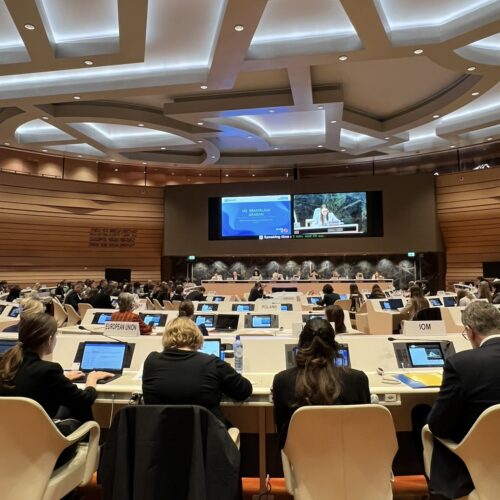
The Fourth World Conference for Women – and the last – took place in Beijing in 1995 and marked a turning point in the global agenda for equality for all women and girls. The outcome document called the Beijing Declaration and Platform for Action (BPfA) is, to this day, the policy document for the advancement of all women and girls. It has been the reference point for the regional reviews by NGOs, governments and the United Nations each five years since 1995 and remains the basic document that is referred to in order to assess achievements, gaps and challenges for women and girls domestically and globally. It listed 12 Critical Areas of Concern. Until now nowhere in the world has achieved all 12.
In keeping with UN practice, there is a review every five years of significant Conventions and major agreements. As such there would usually be a conference every five years. These take place at the regional level – the 5 regions according to the UN. The UNECE region is Western Europe and Other States with the regional UN Commission being UNECE that includes 56 countries including Europe, Turkey, Russia, Canada and North America.
The formal Member States analysis of B+30 will take place through the 69th Commission on the Status of Women in March 2025. The Preparatory Committee for UNECE region took place in Geneva on 21 & 22 October 2024 hosted and organized by UNECE and UN Women Regional Office for Europe and Central Asia (ECARO), titled “Reviewing 30 years of Beijing Commitments to Accelerate Gender Equality in the UNECE Region,”.
The interministerial meeting aims to reinvigorate political commitment to advance gender equality and the empowerment of women and girls in the UNECE region and build regional consensus on priority actions to accelerate the implementation of commitments made in the Beijing Declaration and Platform for Action. It brought together ministers, senior officials and representatives from relevant ministries, UN Nations entities, regional institutions and organizations, civil society organizations, youth organizations, academia, independent experts and other relevant stakeholders from across the UNECE region.
High-level roundtable deliberated on priorities that concern gender equality and the empowerment of women in the UNECE region, including:
(i) Key trends in gender equality dynamics;
(ii) Accelerating women’s economic empowerment: the path to peaceful, just and inclusive societies;
(iii) Women in leadership and their full and equal participation in decision-making;
(iv)Ending violence against women and girls;
(v) Leveraging financing for gender equality;
(vi) Closing the gender gap: effective policies to deliver on SDGs in the ECE region. See the ‘Beijing+30 in Europe and Central Asia’ In Focus page for more information.
The result of this consultation on the achievements, gaps and challenges for our region will be shared with UN Women and will be included in the global report on the implementation of the Beijing Declaration and Platform for Action.
https://unece.org/gender/events/beijing30-regional-review-meeting
https://unece.org/sites/default/files/2024-09/concept-note_beijing30_rrm.pdf
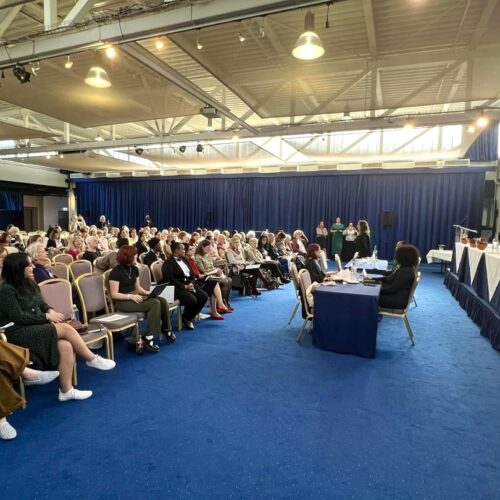
UNECE Beijing +30 Civil Society Consultation and Forum was organized by the NGO Committee on the Status of Women, Geneva over two days, as a service to the women and girls of the UNECE region. The B+30 Civil Society Forum featured interactive workshops and advocacy training covering the 12 critical areas of the Beijing Platform for Action such as Women & Poverty, Violence Against Women, Education and Training for Women, Women and Health in which UVGI participated. The forum also included workshops on protecting the Human Rights of Women, Women and Media, Feminism and Faith, the Girl Child, CEDAW, UN Geneva Human Rights Mechanisms, and Women & Environment. Additionally, emerging issues such as artificial intelligence (AI) and the situation of widows were addressed.
The second day included interactive informal strategy meetings followed by high-level and civil society plenary, where a panel shared insights on multi-stakeholder engagement. Notable guests included the UNECE Executive Secretary, UN Women Deputy Executive Director, and Ambassadors from UNECE Region.
An advocacy toolkit was introduced, along with an overview of the civil society consultation and the outcome documents. The forum concluded with presentations of statements prepared for the Member States Review and wrapped up with a Beijing +30 reception.
Through our participation in Beijing+30 Civil Society Forum interactive workshops and advocacy training and video statements, UVGI reaffirms its dedication to collective action, innovation, and advocacy to ensure that the goals of the Beijing Platform for Action are realized, leaving no one behind. https://ngocsw-geneva.ch/beijing-30/
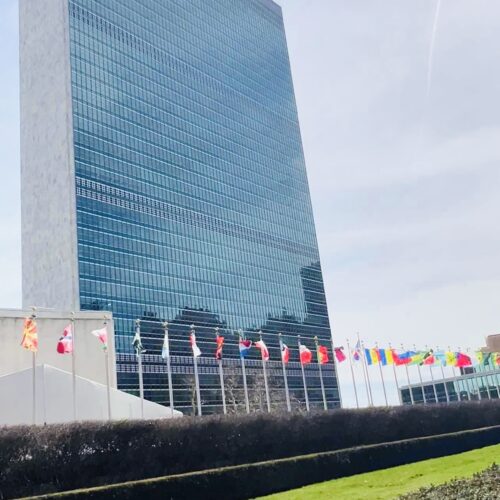
The Summit of the Future is a high-level event, convened by the Secretary-General of the United Nations on 22 and 23 September 2024 at United Nations Headquarters in New York, bringing world leaders together to forge a new international consensus on how we deliver a better present and safeguard the future.
This once-in-a-generation opportunity was attended by Heads of State and Government, observers, IGOs, UN Officials, civil society, academia and non-governmental organizations. In a broader push to increase the engagement of diverse actors, the formal Summit was preceded by the Action Days from 20-21 September, to generate additional opportunities for the inclusion of all actors, which attracted a high number of stakeholders representing all segments of society. These stakeholders have all played a key role in shaping the Pact for the Future and its annexes, and a critical role to its implementation.
https://www.un.org/en/summit-of-the-future
The Action Days kicked off with a dedicated, youth-led afternoon followed by a Saturday program which focused on three priority themes – digital and technology, peace and security, and sustainable development and financing. In addition to the three themes, there was also a dedicated focus throughout the day on future generations.
The aim of the Summit of the Future is twofold:
• accelerate efforts to meet existing international commitments, and
• take concrete steps to respond to emerging challenges and opportunities.
This will be achieved through an inter-governmentally negotiated and an action-oriented outcome document called the Pact for the Future which included a Global Digital Compact and a Declaration on Future Generations as annexes. The Pact covers a broad range of issues including:
• Sustainable development and financing for development;
• International peace and security;
• Science, technology and innovation and digital cooperation;
• Youth and future generations; and
• Transforming global governance
• Climate change, human rights, and gender.
The Pact was negotiated, and endorsed by countries in the lead-up to and during the Summit in September 2024. The result will be a world – and an international system – that is better prepared to manage the challenges we face now and in the future, for the sake of all humanity and for future generations.
https://www.un.org/en/summit-of-the-future/pact-for-the-future
At the Summit of the Future on 22 September 2024, world leaders adopted a Pact for the Future that includes a Global Digital Compact and a Declaration on Future Generations(A/RES/79/1). This Pact is the culmination of a years-long process to adapt international cooperation to the realities of today and the challenges of tomorrow. The hard work of implementation begins immediately. The adoption of the Pact demonstrates that countries are committed to an international system with the United Nations at its center. Leaders set out a clear vision of a multilateralism that can deliver on its promises, is more representative of today’s world and draws on the engagement and expertise of governments, civil society and other key partners.
The agreement is covering both new areas and issues on which agreement has not been possible in decades. Above all, it aims to ensure that that international institutions can deliver in the face of a world that has changed dramatically since they were created. It makes clear commitments and achieves concrete deliverables on a range of issues, with strong attention to human rights, gender and sustainable development.
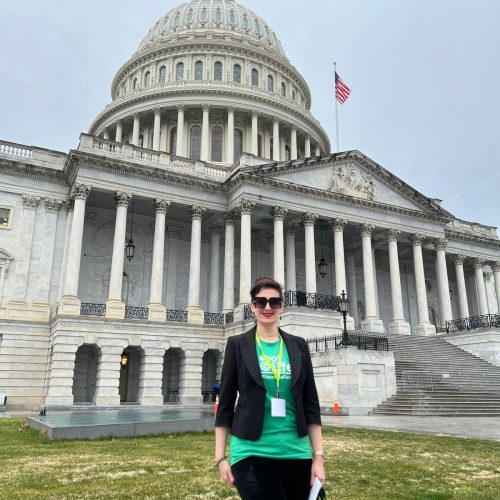
World Immunization Week
https://www.who.int/campaigns/world-immunization-week/
Efforts during World Immunization Week focus on several key areas:
1. Raising Awareness: Educational campaigns aim to inform communities about the life-saving benefits of vaccines and the critical role they play in preventing diseases.
2. Strengthening Healthcare Systems: Initiatives are in place to enhance healthcare delivery, ensure the availability of medical supplies, and rebuild trust in vaccines.
3. Targeting Vulnerable Populations: Special attention is given to countries with the highest number of unvaccinated children. These efforts include door-to-door campaigns, mobile clinics, and community engagement to reach children who have missed their vaccinations.
The ultimate goal of World Immunization Week is to ensure that everyone, regardless of their location, has access to vaccines, thereby preventing disease outbreaks and saving lives. The week serves as a reminder of the progress made and the ongoing challenges in achieving universal immunization coverage. By uniting global efforts, we can protect more communities from vaccine-preventable diseases and move towards a healthier, safer world for all.
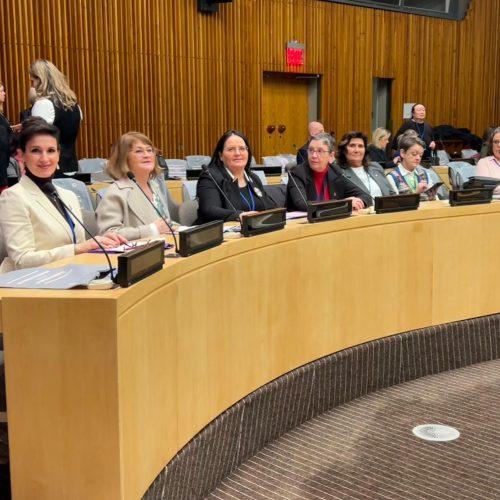
The primary theme for CSW68 was "Accelerating the achievement of gender equality and the empowerment of all women and girls by addressing poverty and strengthening institutions and financing with a gender perspective." This focus underscored the urgent need to close the gender-poverty gap and to implement policies that foster economic justice and sustainable development for women.
Throughout the two weeks, the Commission engaged in various activities including ministerial round tables, panel discussions, interactive dialogues, and intergovernmental negotiations. Key topics included mobilizing financing for gender equality, promoting women's leadership in economic policies, and enhancing women's access to technology and digital spaces. A notable highlight was the series of side events hosted by member states, UN entities, and NGOs, which provided additional platforms for advocacy and knowledge sharing
https://www.unwomen.org/en/news-stories/explainer/2024/03/your-guide-to-csw68
https://www.unwomen.org/en/csw/csw68-2024/official-meetings).
The session concluded with the adoption of the Agreed Conclusions, a comprehensive document outlining concrete measures to empower women and girls and address poverty. The recommendations emphasized the need for gender-responsive policies, improved access to financial services, and increased investment in women's rights organizations. These conclusions are intended to guide international, national, and local efforts to achieve gender equality 68th Session of the Commission on the Status of Women delivers roadmap addressing women’s poverty and advancing gender equality. CSW68 highlighted the persistent challenges facing women globally, including the feminization of poverty and systemic gender biases. The agreed conclusions and the discussions at CSW68 aim to accelerate progress toward the Sustainable Development Goals by promoting gender equality and empowering women and girls in all spheres of life.
